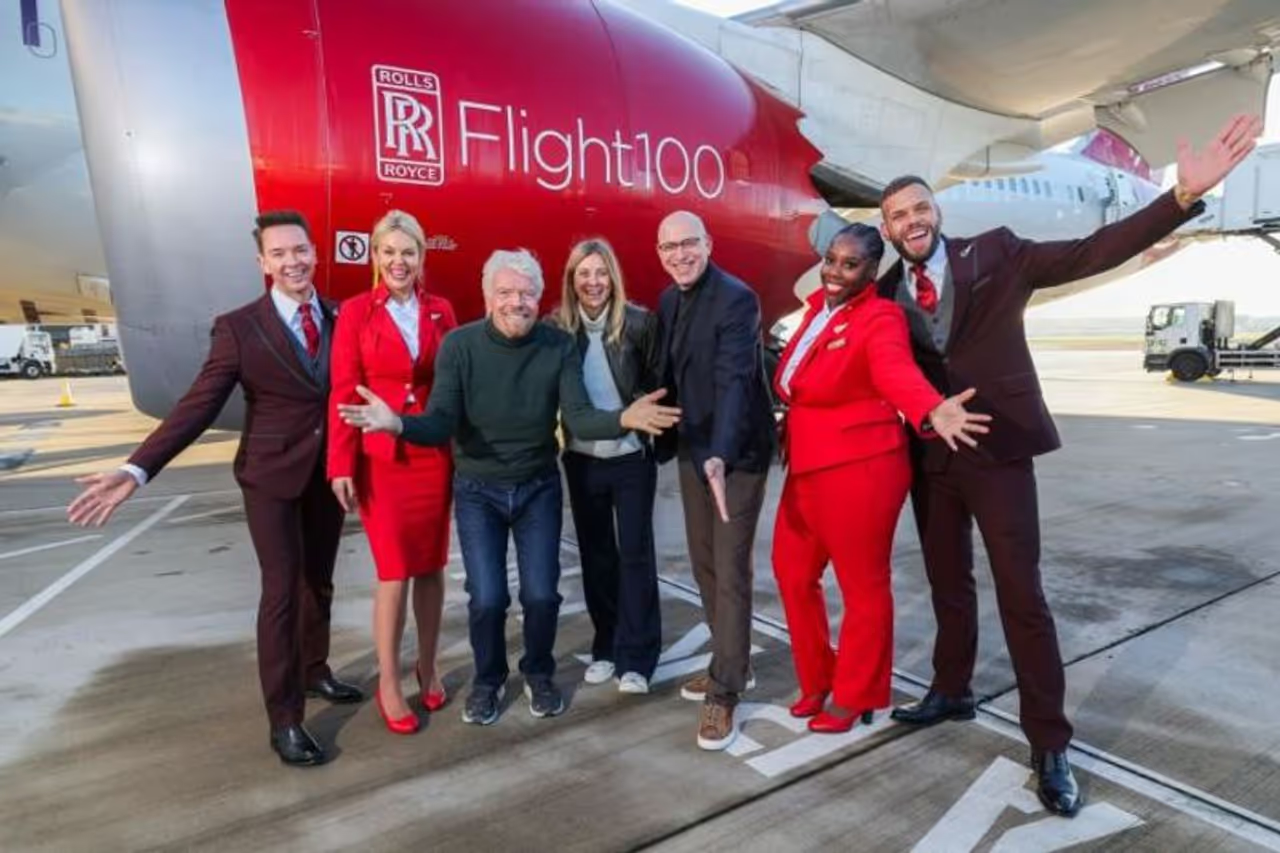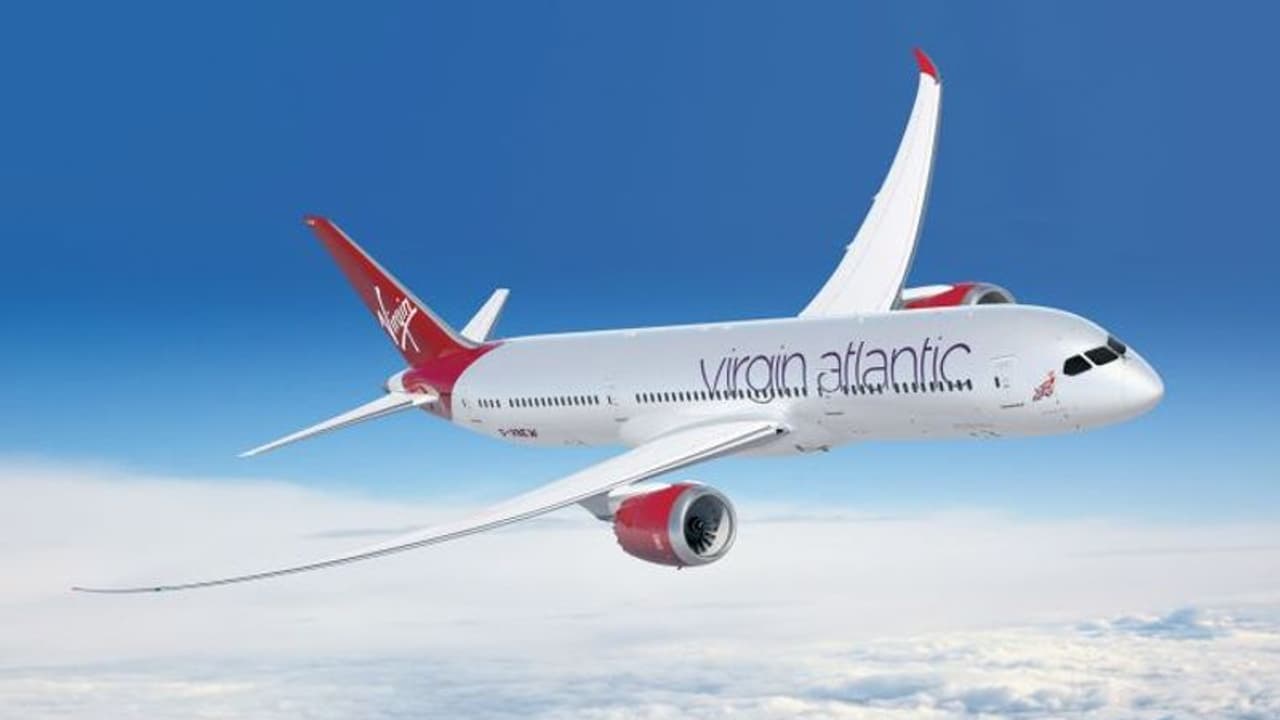The unique dual blend of SAF used in the flight is a combination of Hydroprocessed Esters and Fatty Acids (HEFA) and Synthetic Aromatic Kerosene (SAK), contributing to Virgin Atlantic's broader goal of achieving Net Zero by 2050
In a groundbreaking achievement, Virgin Atlantic's historic flight powered by 100% Sustainable Aviation Fuel (SAF) departed from London Heathrow to New York JFK today, signalling the successful conclusion of a year-long collaboration. The purpose of this initiative is to showcase SAF's potential as a secure drop-in substitute for traditional fossil-derived jet fuel, demonstrating compatibility with existing engines, airframes, and fuel infrastructure.

SAF emerges as a key player in the decarbonization of long-haul aviation, contributing to the pathway to achieve Net Zero by 2050. Derived from waste products, this fuel not only delivers impressive CO2 lifecycle emissions savings of up to 70% but also mimics the performance of conventional jet fuel.
Sir Richard Branson, the Founder of Virgin Atlantic, expressed pride in the pioneering endeavour, emphasizing the airline's commitment to challenging industry norms and driving advancements in sustainability since its establishment in 1984. He highlighted the ongoing efforts, spanning from carbon fibre aircraft and fleet upgrades to sustainable fuels, aimed at pushing the boundaries of innovation.
The Flight100 mission addresses the immediate usability of SAF, with today's flight underscoring its viability. Despite representing less than 0.1% of global jet fuel volumes, SAF usage remains limited to a 50% blend in commercial jet engines due to existing fuel standards. The Flight100 initiative aims to demonstrate that the challenge lies in scaling up production, requiring swift policy and investment actions from both industry and government to establish a thriving UK SAF industry.
Beyond showcasing SAF's capabilities, Flight100 will assess the impact of its usage on non-carbon emissions. Consortium partners, including ICF, Rocky Mountain Institute (RMI), Imperial College London, and the University of Sheffield, will support the research to enhance scientific understanding of SAF's effects on contrails and particulates. The data will be shared with the industry, contributing to ongoing contrail work through RMI's Climate Impact Task Force, partly funded by Virgin Unite.
The unique dual blend of SAF used on Flight100 comprises 88% HEFA (Hydroprocessed Esters and Fatty Acids) supplied by AirBP and 12% SAK (Synthetic Aromatic Kerosene) supplied by Virent, a Marathon Petroleum Corporation subsidiary. This innovative blend, derived from waste fats and plant sugars, supports Virgin Atlantic's broader ambition of achieving Net Zero by 2050.

Virgin Atlantic has been at the forefront of SAF development at scale for 15 years. As the industry and government collectively strive to create a UK SAF industry and meet the 10% SAF by 2030 target, Virgin Atlantic anticipates significant social and economic benefits, including an estimated £1.8 billion in Gross Value Added to the UK and over 10,000 jobs.
The airline acknowledged the SAF Grand Challenge set by President Biden in 2021 for the US, pledging the adoption of 3 billion gallons of SAF by 2030. The US government's commitments, including the Inflation Reduction Act, highlight the importance of global collaboration to achieve emissions reduction targets within the aviation industry.
UK Transport Secretary Mark Harper commended today's historic flight powered by 100% sustainable aviation fuel, emphasizing the government's support for the emerging SAF industry to create jobs, foster economic growth, and advance towards Jet Zero.
